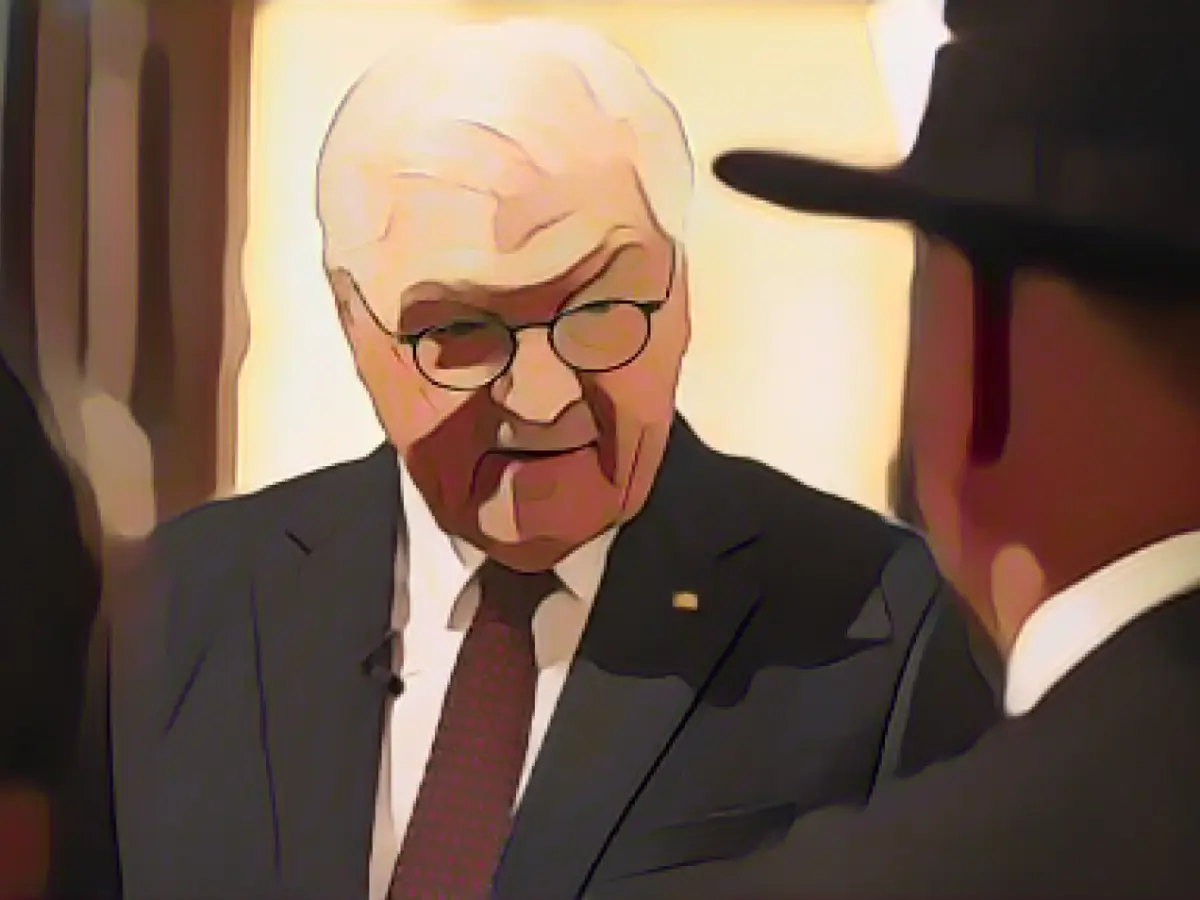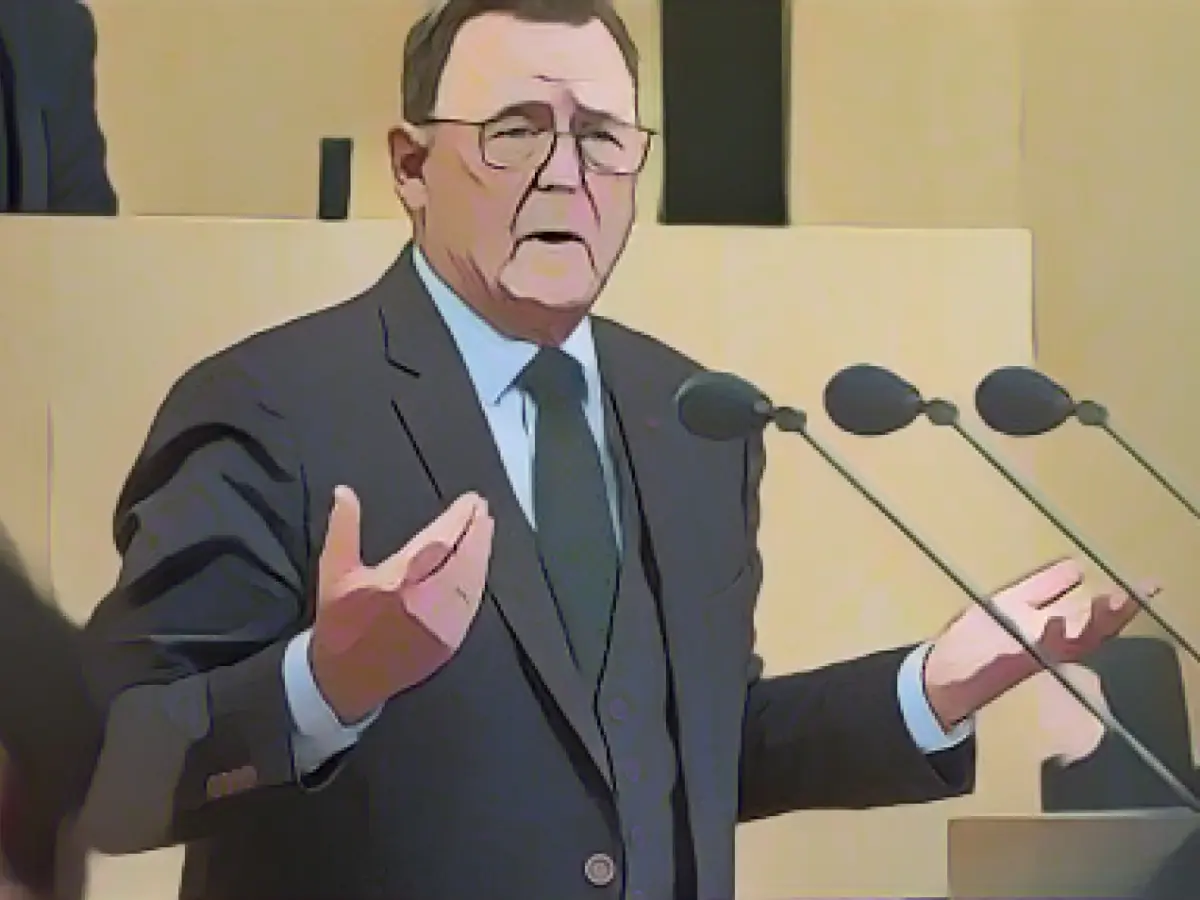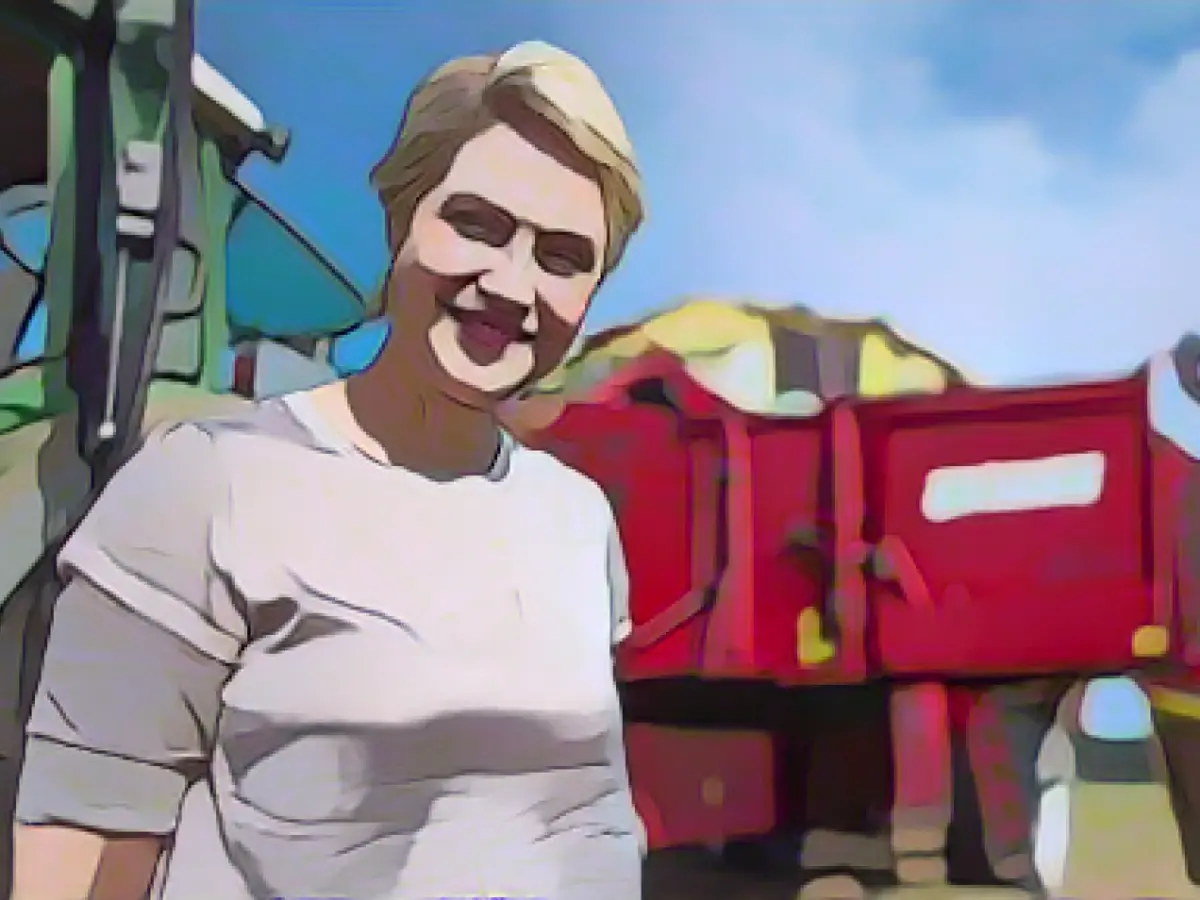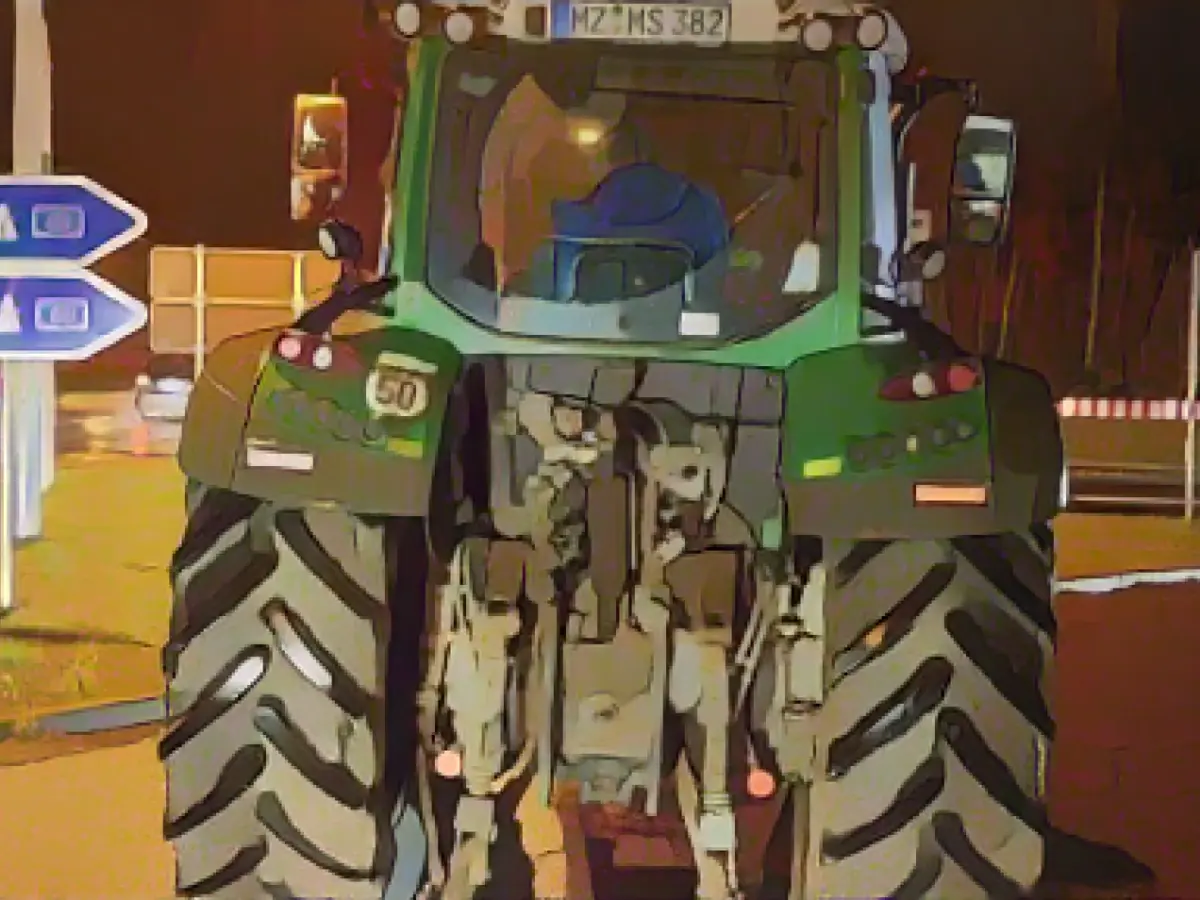Ruckus in the Black Forest: Farmers Protest Near Steinmeier's Event
Farmers in the community of St. Peter, nestled in the Black Forest, voiced their displeasure over a proposed end to tax breaks during a federal event featuring President Frank-Walter Steinmeier. The annual televised Christmas concert, which was being recorded in the town's parish church at the time, saw Steinmeier, his wife Elke Büdenbender, and other guests in attendance.
Despite the presence of around 30 tractors in a St. Peter meadow, local police prevented additional protesters from joining the cause. The gathering had reportedly been organized spontaneously by the farmers themselves. In Freiburg, roughly 20 kilometers away, up to 200 tractors participated in an earlier farmers' protest, as per police reports.
The annual Christmas concert, presented by Johannes B. Kerner, is a cherished German tradition. Initiated in 1995 by then-President Roman Herzog and his wife Christiane, the concert is held on Christmas Eve to celebrate the holiday with the German population. This year's event in St. Peter welcomed guests such as the Archbishop of Freiburg, Stephan Burger, and Mayor of Freiburg, Martin Horn (non-party).
The Badischer Landwirtschaftlicher Hauptverband confirmed that the protest actions were organized regionally in the southern Baden region. In Berlin, a major demonstration took place, featuring a column of tractors led by the farmers' president, Joachim Rukwied. He called upon the coalition government to revoke their plans to reduce agricultural diesel and vehicle tax.
Background Insights
While the recent protests in the Black Forest might seem unrelated, they share some historical precedents. The German Peasants' War, which took place in the early 16th century, was a period of widespread peasant uprisings in various regions of Germany, including the Black Forest.
The farmers' grievances during that time centered on economic conditions, such as peonage, land use, and restrictive easements. Social inequality was another prominent issue, with the peasants wanting to address serfdom, death tolls, and exclusive fishing and hunting rights. Religious influences, including rhetoric from the emerging Protestant Reformation, further impacted the peasants' actions.
Historically, these uprisings were ultimately suppressed by well-equipped and disciplined military forces. Some local authorities also negotiated with the peasants and made compromises, while others took punitive actions against the rebels after the protests' suppression.
The misconception of modern protests being tied to the historical German Peasants' War stems from a misunderstanding or misinterpretation of events. The present-day protests and events, such as COVID-19 pandemic protests and recent happenings in Munich, are not intertwined with the historical context of the German Peasants' War.








